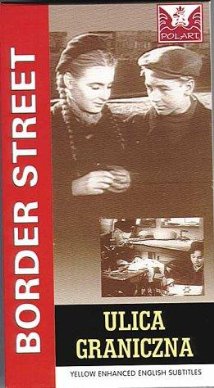What it’s about
In 1939 Warsaw, the denizens of an apartment building stoically endure the Nazi occupation. Dr. Bialek (Leszczynski), who has heretofore hidden his Jewish heritage, sends his daughter Jadzia (Broniewka) to the country and abandons his opulent apartment. Jadzia returns to look for him and finds an anti-Semitic Polish family has moved into their lodgings. Discovering that her father is in the newly created Warsaw ghetto, she joins him there, along with the Libermanns and their son Davidek (Zlotnicki). They suffer through incredible deprivation, occasionally receiving help from their Polish friends outside the ghetto. By 1943, with Hitler's Final Solution in place, the Jews resolve to resist en masse, but their uprising is ill-fated.
Why we love it
A self-identified Communist, director Ford certainly used his films to express pro-Socialist sentiments, but this gripping drama is much more than mere propaganda. Made in 1947 with the horrors of World War II still fresh, “Street” was one of the first films to capture the atrocities of the Holocaust. Ford tells the multi-stranded story of racial intolerance without theatrical embellishment and mostly through the eyes of the children, which makes it all the more powerful. Especially poignant is his juxtaposition of Jadzia, a young Jewish girl, with Fredek (Kruk), her childhood friend who becomes a Hitler youth. Ford went on to run Film Polski and teach at the National Film School, where he had Roman Polanski for a student and also mentored director Andrzej Wajda. With “Border Street,” you can now discover the timeless work of this little known master.
